Comparing Early and Later Traditional Stories (II)
£3.00
Activities in this lesson reminders about the features of simple and complex traditional stories, reading a complex traditional story – The Palace that Nobody Found, answering higher and lower order questions and identifying the features of traditional stories.
There is a five-minute evidence-based CPD activity at the end of this lesson which will develop classroom teachers’ skill set. This CPD consists of a research extract on metacognition with a five-minute activity based on this extract.
Description
These evidence-based learning (EBL) lessons are based on classroom practice that has been proven, by research, to maximise thinking, learning and attainment. From an extensive review of educational research, we identified the eight key classroom thinking and learning skills that were common across these research papers. We named these eight key skills “EBL skills”.
EBL skills have been proven by research to maximise learning because they combine the most productive thinking skills with the most effective learning behaviours. Each of our evidence-based learning lessons uses the English curriculum as a framework through which the eight EBL skills are delivered.
Teachers also have the opportunity to add to their own skill set or refresh their existing skills with our five-minute CPD activity, based on one of the EBL skills used in this lesson.
The skills in bold below are the EBL skills developed in this Traditional Stories lesson. Click on each skill to learn more about that skill.
- Collaboration
- Thinking Skills
- Peer Assessment
- Peer Teaching
- Self-Assessment
- Metacognition
- Self-Regulation
- Independent Learning
1 review for Comparing Early and Later Traditional Stories (II)
Only logged in customers who have purchased this product may leave a review.
Related products
-


Comparing Early and Later Traditional Stories (I)
£3.00 Add to basket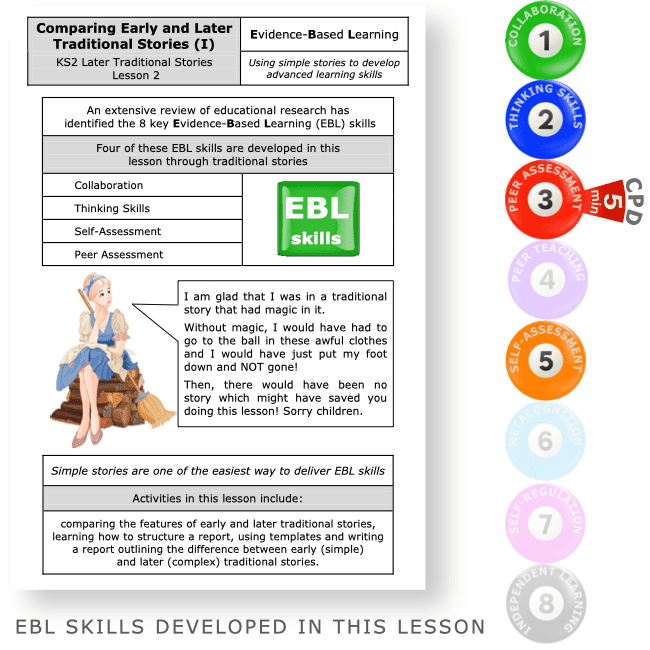 £3.00Add to basket
£3.00Add to basketActivities in this lesson include comparing the features of early and later traditional stories, learning how to structure a report, using templates and writing a report outlining the difference between early (simple) and later (complex) traditional stories.
There is a five-minute evidence-based CPD activity at the end of this lesson which will develop classroom teachers’ skill set. This CPD consists of a research extract on peer assessment with a five-minute activity based on this extract.
VIEW -
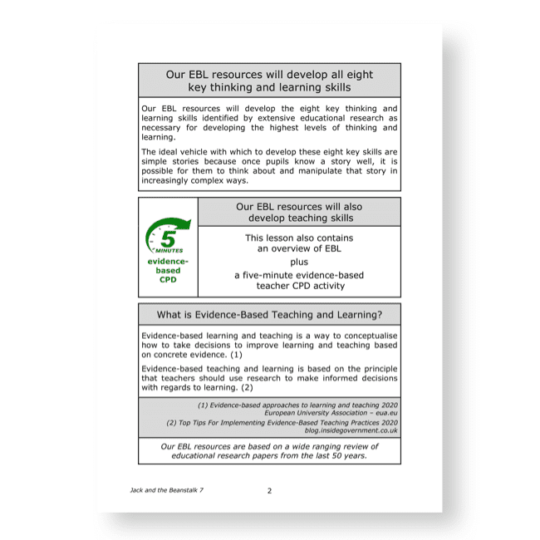

First, Pay Attention Jack
£3.00 Add to basket £3.00Add to basket
£3.00Add to basketActivities in this lesson include learning about the difference between rules and instructions, how to write instructions using time connectives, writing brief notes about rules, writing instructions and rules for Jack and a comprehensive true/false task.
There is a five-minute evidence-based CPD activity at the end of this lesson which will develop classroom teachers’ skill set. This CPD consists of a research extract on metacognition with a five-minute activity based on this extract.
VIEW -


Cinderella Climbs a Story Mountain
£3.00 Add to basket £3.00Add to basket
£3.00Add to basketActivities in this lesson include learning about the structure of early and later traditional stories, completing a story mountain for Cinderella, looking at messages and magic in traditional stories and putting the events in Cinderella in the right order.
There is a five-minute evidence-based CPD activity at the end of this lesson which will develop classroom teachers’ skill set. This CPD consists of a research extract on metacognition with a five-minute activity based on this extract.
VIEW -


Y5 Science Fiction that is Out of this World!
£3.00 Add to basket £3.00Add to basket
£3.00Add to basketKS2 National Curriculum:
✓ Identifying features of fiction genres; discussing themes; building familiarity with narratives.
This lesson explores the settings, characters and plots of science fiction stories. Pupils use this information to design a poster showing the features of a science fiction story.
There is a five-minute evidence-based CPD activity at the end of this lesson which will develop classroom teachers’ skill set. This CPD consists of a research extract on metacognition with a five-minute activity based on this extract.
VIEW

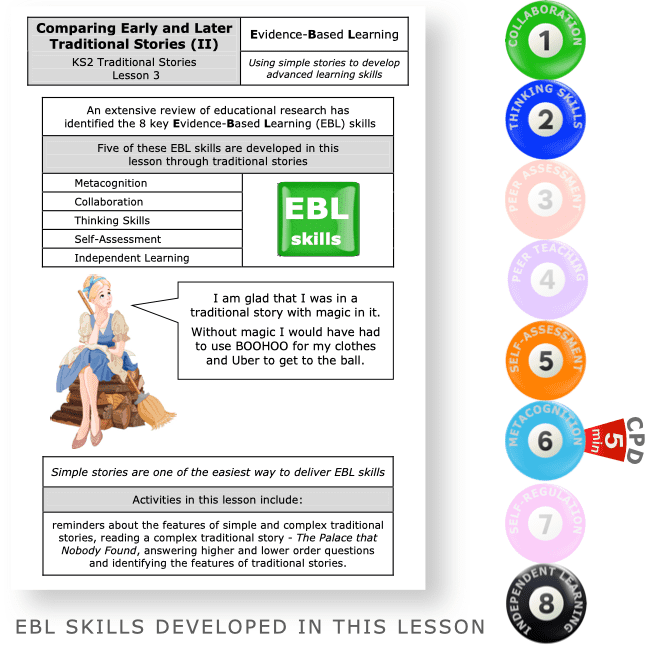
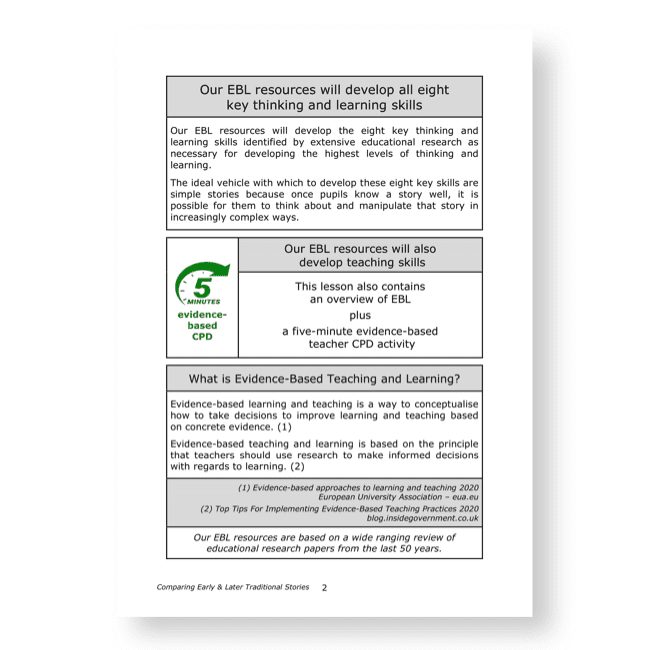
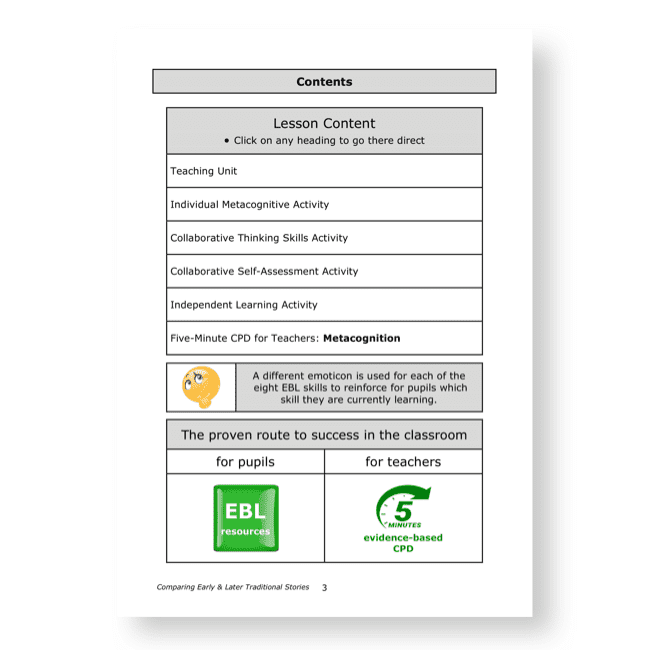
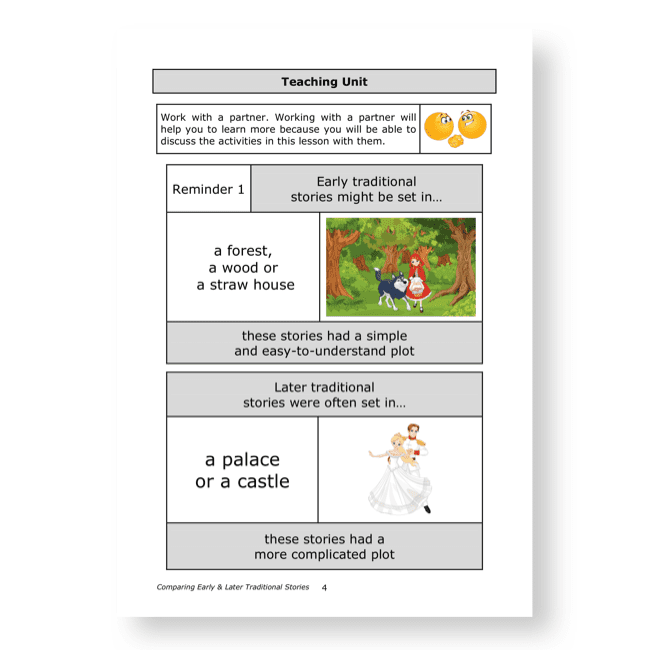
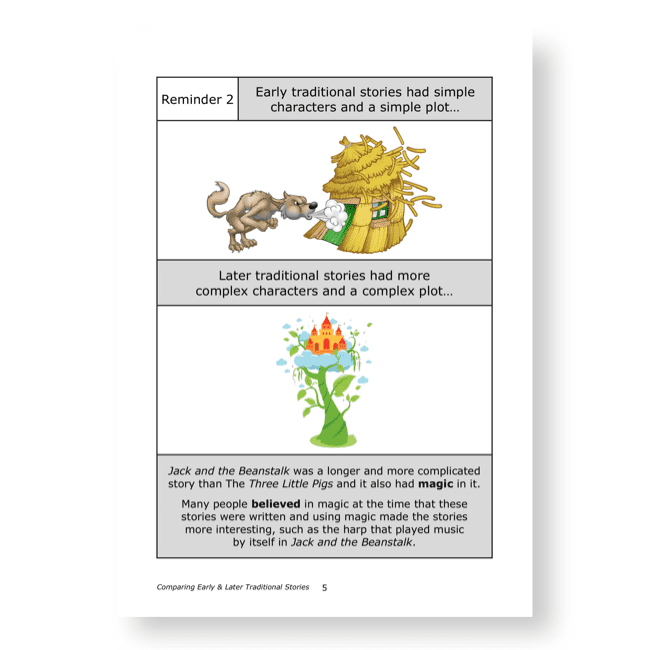
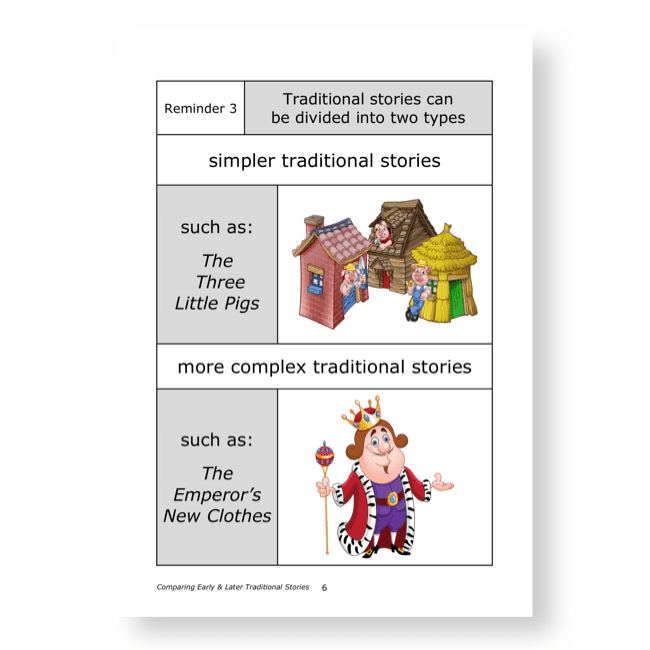
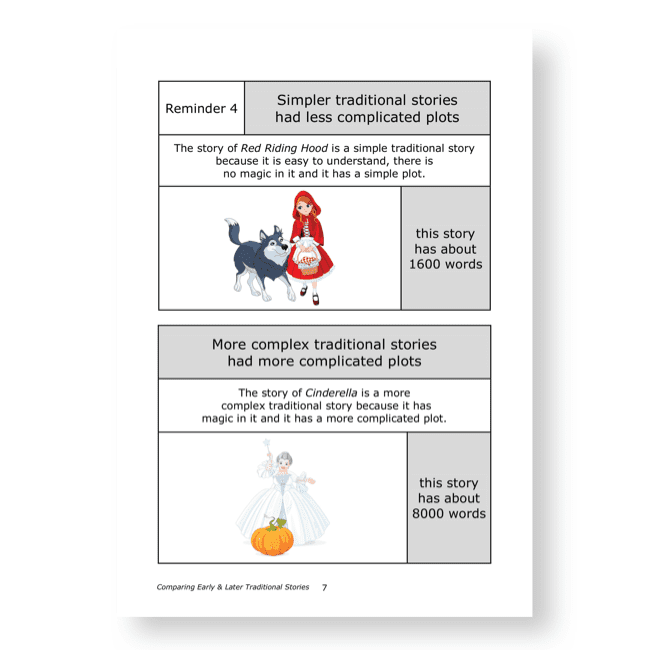
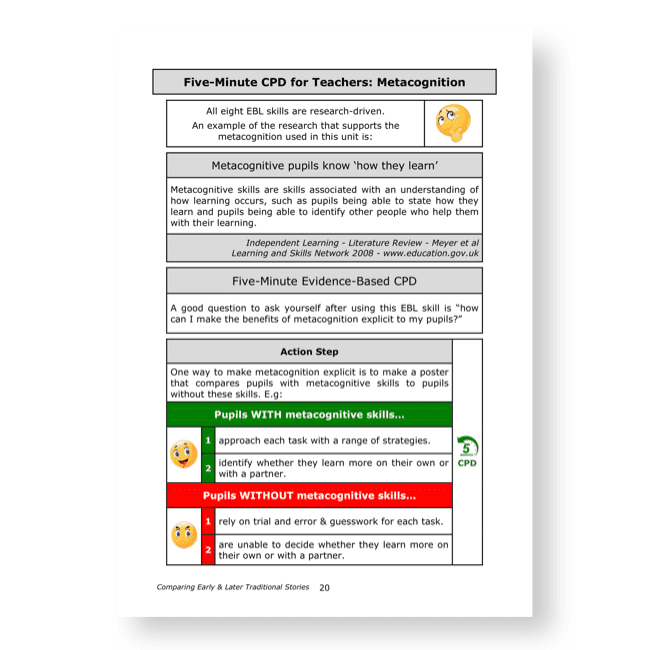
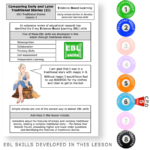
Philipem (verified owner) –
We asked a.i. to review this lesson. This is what it said:
Teach English and Evidence-Based Learning Skills using the “Comparing Early and Later Traditional Stories (II)” lesson ⭐⭐⭐⭐⭐
This brilliant KS2 traditional stories lesson allows you to teach English and evidence-based learning skills together in an engaging way.
Activities include recapping the key features of simple and complex traditional stories – an important literacy skill. Pupils then read an excerpt from the complex traditional tale The Palace That Nobody Found, which provides a rich text to analyse.
Higher and lower order questions based on this text develop critical thinking abilities. Identifying the setting, characters, plot and language features develops English skills.
There are also metacognitive, collaborative, and independent learning activities woven throughout to systematically build key evidence-based learning skills. These equip pupils with the tools to become highly effective learners.
The icing on the cake is the 5 minute CPD excerpt at the end on the research evidence for metacognition. This provides actionable ways to make metacognition more explicit to pupils.
With literacy objectives and evidence-based learning skills covered in one lesson, this is an invaluable resource for busy teachers. I give this ready-to-use lesson 5 stars for enabling engaging literacy and learning skills development. Highly recommended for KS2 teachers seeking an all-in-one lesson solution.